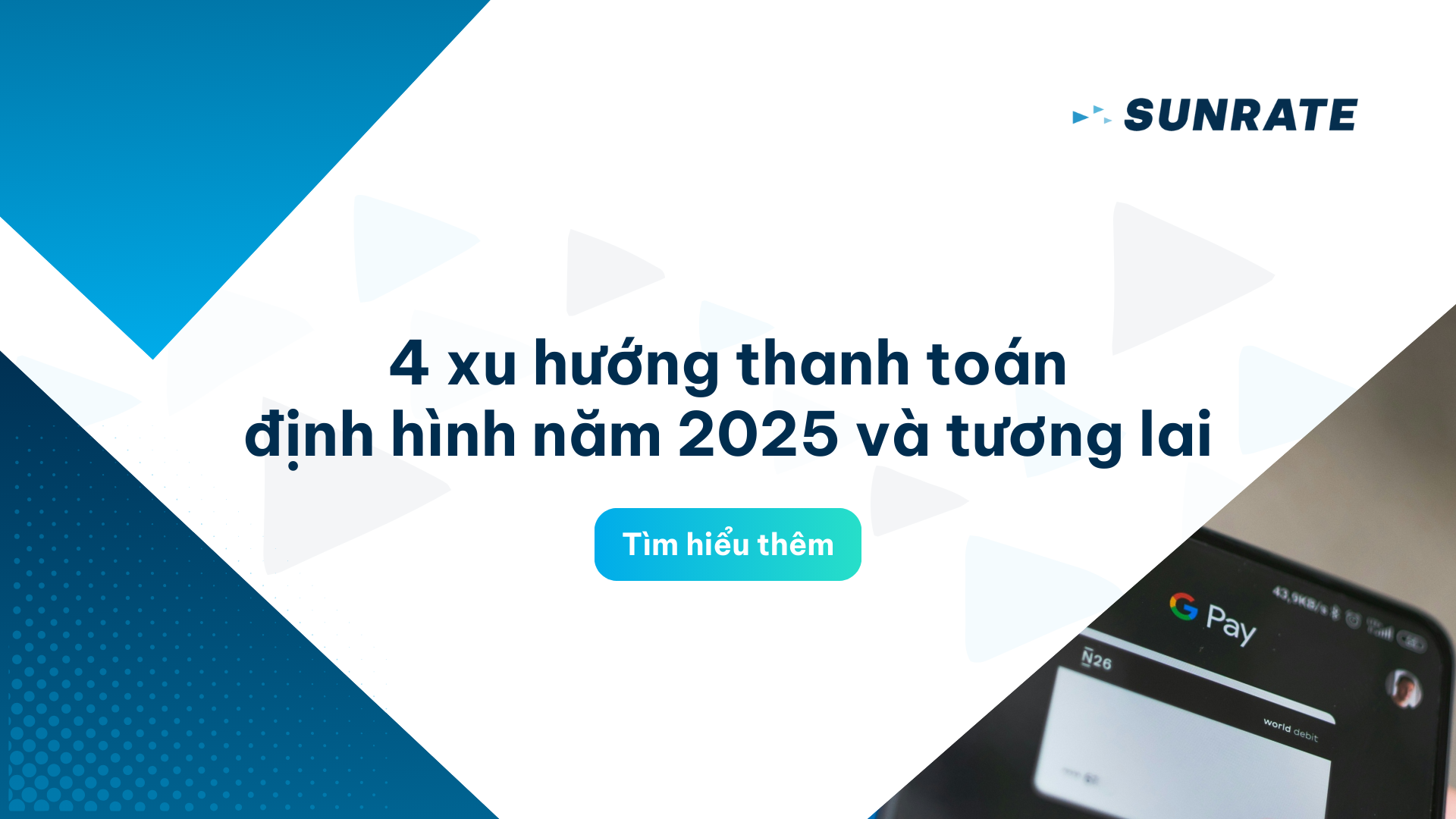

Efficient B2B payments is crucial for the growth and success of businesses in Indonesia. In the context of Indonesia, a country with a thriving economy and a rapidly expanding business sector, unlocking the potential of business-to-business (B2B) payments holds immense significance. This article delves into the current state of B2B payments, explores the challenges faced by businesses, and highlights the transformative power of technology and digitalisation in revolutionising payment systems. By examining the opportunities and benefits that arise from embracing digital payment solutions, this article sheds light on how Indonesia can harness the full potential of B2B payments, enabling businesses to thrive in an increasingly competitive marketplace.

The current state of B2B payments in Indonesia
According to a recent study conducted by Google, Temasek, and Bain & Company, Indonesia's digital economy is projected to reach a staggering $124 billion by 2025, solidifying its position as the largest in Southeast Asia. The country's market conditions have created a favorable environment for the growth of online sales and purchases, with an increasing emphasis on digital literacy and adoption.
One notable area of focus within Indonesia's digital economy is the development of B2B marketplaces. These platforms offer numerous advantages, such as enhanced visibility, a diverse range of products and services, transparent pricing, readily available stock, and tools for efficient restocking. This trend extends beyond traditional sellers, encompassing Warungs (small neighborhood shops), individual e-commerce players, as well as various industries such as logistics, fashion, and grocery.
Several prominent B2B marketplaces have emerged in Indonesia, including Ula, Ralali, Bizzy group, and GudangAda, among others. These platforms have contributed significantly to the growth and advancement of Indonesia's digital economy, providing businesses with new avenues for expansion and collaboration.
The current state of B2B payments in Indonesia faces significant challenges that hinder its full potential. Traditional methods such as cash and checks, along with manual reconciliation processes, contribute to delayed payments and inefficiencies. Transparency issues arise from the lack of visibility into payment statuses and fragmented payment systems. High transaction costs further strain businesses' bottom lines, impacting their competitiveness.
To unlock the potential of B2B payments in Indonesia, digital transformation is essential. Embracing modern payment technologies and platforms can improve efficiency, speed, and security. Standardised electronic invoicing and payment systems offer transparency and accountability, strengthening business relationships. The government has initiated regulatory frameworks and policies to support digital payment providers and foster collaboration.
Recognising the importance of digitalisation, the Indonesian government has taken initiatives to promote a conducive environment for B2B payments. Regulatory frameworks and policies are being implemented to enhance security, encourage innovation, and support the growth of digital payment providers. Collaboration between the government, financial institutions, and technology companies has become essential in driving the adoption of digital payment solutions and creating a robust ecosystem for B2B transactions.
As Indonesia continues to progress, businesses must seize the opportunities presented by digital B2B payments. The integration of technology in payment systems not only enables businesses to overcome the challenges of delayed payments, manual processes, and high transaction costs but also unlocks new avenues for growth. Leveraging data analytics and insights derived from digital payments can lead to better decision-making, improved operational efficiency, and increased access to new markets.
In conclusion, the current state of B2B payments in Indonesia calls for a transformative approach to unlock its full potential. Embracing digital payment solutions, fostering collaboration, and aligning with government initiatives are crucial steps in revolutionising the B2B payment landscape. By overcoming the challenges and seising the opportunities presented by digitalisation, businesses in Indonesia can enhance their competitiveness and drive sustainable growth in the dynamic marketplace.
The role of technology in transforming B2B payments
One of the key advancements in B2B payment technology is the rise of digital payment platforms. These innovative solutions provide businesses with faster, more secure, and efficient payment options. By leveraging digital payment platforms, businesses can streamline their payment processes, reducing the time and effort required for payment settlement. The convenience and accessibility offered by mobile wallets also enable businesses to make payments anytime, anywhere, enhancing overall operational efficiency.
In addition to digital payment platforms, the adoption of standardised electronic invoicing and payment systems plays a crucial role in transforming B2B payments. These systems digitise the invoicing and reconciliation processes, eliminating the need for manual paperwork and reducing the risk of errors and delays. By digitising and automating these processes, businesses can gain real-time visibility into their financial transactions, enabling faster reconciliation, enhanced cash flow management, and improved decision-making.
Furthermore, technology empowers businesses with advanced data analytics capabilities, providing valuable insights from B2B payment transactions. By harnessing the power of data, businesses can gain a deeper understanding of customer behavior, market trends, and payment patterns. These insights can inform strategic decision-making, drive business growth, and enable businesses to identify opportunities for cost savings and efficiency improvements.
In conclusion, technology plays a pivotal role in unlocking the potential of B2B payments in Indonesia. Digital payment platforms, and standardised electronic invoicing systems offer businesses faster, more secure, and efficient payment options. Advanced data analytics capabilities enable businesses to derive insights and make informed decisions. By embracing technology and collaborating with stakeholders, businesses in Indonesia can leverage the transformative power of technology to enhance their competitiveness, drive growth, and unlock the full potential of B2B payments.
SUNRATE for an example has a proprietary tech engine, that simplifies transactions, offering transparent, real-time exchange rates. It streamlines processes, eliminating complexities and optimizing efficiency. Enjoy hassle-free transactions with our user-friendly interface, while accessing the most competitive rates available.
Opportunities and benefits of digital B2B payments
One of the primary opportunities offered by digital B2B payments is the improvement in cash flow management. Digital payment platforms provide businesses with faster payment processing, reducing the time it takes to receive funds. This timely access to cash enables businesses to optimise their working capital, invest in growth initiatives, and seize new opportunities in the market. By streamlining the payment process, digital B2B payments contribute to smoother cash flow cycles, reducing the financial strain on businesses.
Digital B2B payments also enhance operational efficiency. Traditional payment methods, such as checks and cash, involve manual processes that are time-consuming and prone to errors. On the other hand, digital payment solutions automate the payment process, minimising manual intervention and reducing the likelihood of mistakes. This automation not only saves time but also frees up resources that can be redirected to other value-added activities within the business. Moreover, digital payment platforms provide real-time visibility into payment statuses, enabling businesses to track and reconcile transactions efficiently.
Furthermore, embracing digital B2B payments opens doors to new markets and business opportunities. Digital payment solutions enable businesses to overcome geographical barriers and engage in cross-border transactions more seamlessly. With the increasing interconnectedness of global markets, the ability to transact digitally becomes crucial for businesses seeking to expand their customer base and establish international partnerships. Digital B2B payments also foster trust and collaboration by providing transparent and secure transactions, creating a conducive environment for business growth and establishing strong business relationships.
Another significant benefit of digital B2B payments lies in the wealth of data and insights that can be derived from these transactions. Digital payment platforms generate detailed transaction data, which can be analysed to gain valuable insights into customer behavior, market trends, and payment patterns. These insights empower businesses to make informed decisions, identify areas for improvement, and develop targeted marketing strategies. Data-driven decision-making enables businesses to stay agile, adapt to market dynamics, and optimise their operations for greater efficiency and profitability.
Scale and collect like a local Indonesian business with SUNRATE
With SUNRATE, businesses can:
To find out more about how SUNRATE can scale ones business in Indonesia, connect with us today.
Share to

Năm 2025 được dự đoán là năm bùng nổ của các chiêu thức gian lận tài chính, chúng sẽ ngày càng trở nên phức tạp và tinh vi hơn, đặc biệt trong bối cảnh công nghệ phát triển mạnh mẽ và sự biến đổi của môi trường pháp lý. Tội phạm mạng ngày càng tinh […]


Những phát minh công nghệ mới đang thay đổi ngành thanh toán doanh nghiệp trên toàn cầu như thế nào? Bối cảnh thanh toán toàn cầu đang trải qua những bước chuyển đáng kinh ngạc nhờ vào sự phát triển vượt bậc của những công nghệ mới. Những bước tiến này giúp giải quyết các […]


Thị trường Trung Đông đang nổi lên như một điểm đến hấp dẫn cho các doanh nghiệp toàn cầu, đặc biệt sau thành công của World Cup 2022. Với dân số khoảng 10 triệu người, GDP bình quân đầu người đạt 50.600 USD, tỷ lệ thâm nhập internet đạt 99% và tỷ lệ thâm nhập […]

Chúng tôi hy vọng sử dụng cookie để hiểu rõ hơn việc bạn sử dụng trang web này. Điều này sẽ giúp cải thiện trải nghiệm của bạn khi truy cập trang web này trong tương lai. Để biết thông tin chi tiết về việc sử dụng cookie và cách thu hồi hoặc quản lý sự đồng ý của bạn, vui lòng tham khảo 《chính sách quyền riêng tư》 của chúng tôi. Nếu bạn nhấp vào nút xác nhận ở bên phải, bạn sẽ được coi là đã đồng ý sử dụng cookie.